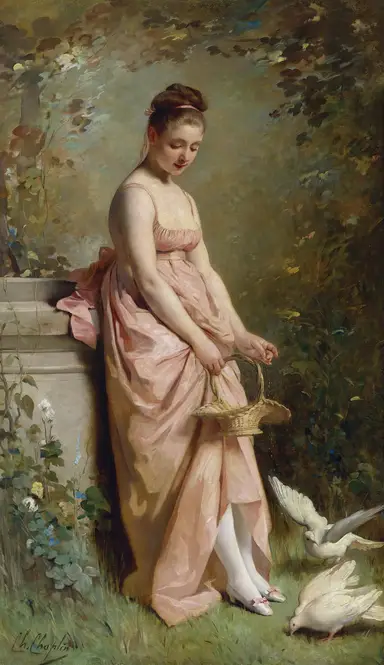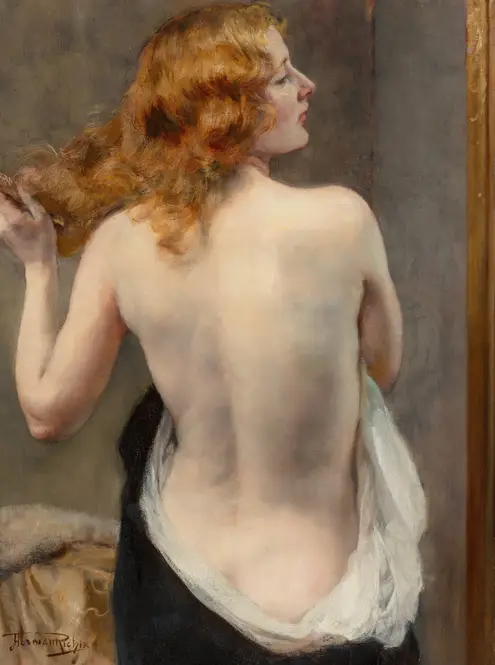-
-full.webp)
Umarmung (1905)
Two figures melt into each other, limbs tangled like roots. The embrace feels heavy, almost desperate—a silent exchange of something unspoken. Shadows cling to their forms, blurring where one body ends and the other begins. It’s less a moment of tenderness than a merging, as if they’re trying to become a single being.
-
 (circa 1563-1565)-full.webp)
The Tower of Babel (Rotterdam) (circa 1563-1565)
A half-built tower spirals into stormy clouds, dwarfing the ant-like workers scrambling across its scaffolding. Below, a king’s entourage arrives—too late. The structure already tilts, its ambition crumbling under divine wrath. Bricks lie scattered like fallen pride.
-
-full.webp)
Resting (C. 1875)
A serene moment of contemplation, rendered with Sargent’s signature sensitivity to light and texture.
-

Feeding Doves
A tender scene of doves flocking around a figure, bathed in soft light, capturing the quiet beauty of fleeting connection.
-
-full.webp)
Tänzerin (circa 1935)
A dynamic portrayal of a dancer, her form alive with movement and energy, blending realism with expressive brushwork.
-

Slight Progress
A painting where light and shadow dance across fragmented forms, hinting at quiet transformation beneath the surface.
-

Nude, seen from behind
A contemplative study of the human form, blending light and shadow to reveal quiet depth and texture.